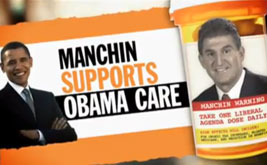
The Breakdown: Do Negative Campaign Ads Sway Voters? The Breakdown: Do Negative Campaign Ads Sway Voters?
With attack ads battling it out on airwaves across the country, Chris Hayes asks Stanford professor Shanto Iyengar: do negative ads ever have positive effects?
Oct 29, 2010 / Chris Hayes
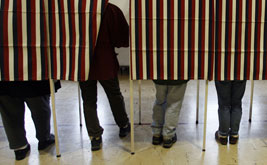
The Breakdown: How Will Citizens United Shape Our Democracy? The Breakdown: How Will Citizens United Shape Our Democracy?
Lawrence Lessig talks to Chris Hayes about what progressives can do to combat the destructive effects of corporate money in elections.
Oct 21, 2010 / Chris Hayes
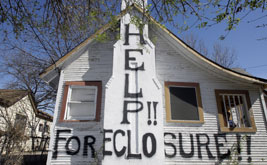
The Breakdown: What Caused the Foreclosure Crisis? The Breakdown: What Caused the Foreclosure Crisis?
Bank of America—the largest US bank—has just said that it will halt foreclosures in 23 states due to documentation irregularities. How did we get into the foreclosure crisis in the...
Oct 15, 2010 / Chris Hayes
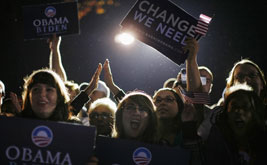
The Breakdown: How Can the Democrats Close the Enthusiasm Gap? The Breakdown: How Can the Democrats Close the Enthusiasm Gap?
Ari Berman and Chris Hayes ask why Republicans are fired up and ready to go while Democrats are just burnt out?
Oct 8, 2010 / Chris Hayes
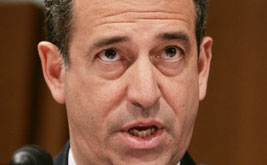
The Breakdown: Why is Russ Feingold in Trouble? The Breakdown: Why is Russ Feingold in Trouble?
Chris Hayes and Wisconsin native John Nichols discuss the grave challenges facing the senator and how Obama and the state's economy affect Feingold's chances this fall.
Oct 1, 2010 / Chris Hayes

The Breakdown: Does the DREAM Act Have a Future? The Breakdown: Does the DREAM Act Have a Future?
In the face of massive GOP opposition, what are some possible ways forward for politicians, voters and activists working for humane immigration reform?
Sep 24, 2010 / Chris Hayes
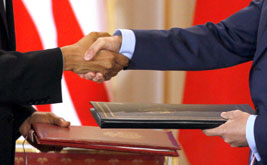
The Breakdown: What Will Happen if Obama’s Nuclear Arms Treaty Does Not Pass? The Breakdown: What Will Happen if Obama’s Nuclear Arms Treaty Does Not Pass?
In April, President Obama and Russian President Dmitry Medvedev signed the New START Treaty, the biggest nuclear arms pact in a generation. But the treaty faces significant Republi...
Sep 17, 2010 / Chris Hayes
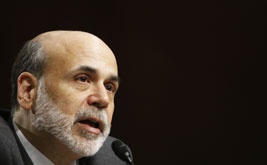
The Breakdown: How Can the Fed Help the Economy? The Breakdown: How Can the Fed Help the Economy?
In a major speech last month, Federal Reserve Chairman Ben Bernanke pledged to buy more longer-term securities if the economy continues to worsen. But will this benefit really tric...
Sep 10, 2010 / Chris Hayes
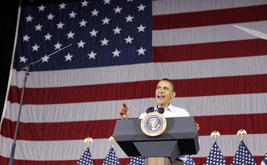
The Breakdown: Do Presidential Speeches Matter? The Breakdown: Do Presidential Speeches Matter?
Ever since his breakthrough keynote at the 2004 DNC, Barack Obama has been defined by his oratory skills. But has his rhetoric really advanced his policy goals? On this week's edit...
Sep 3, 2010 / Chris Hayes
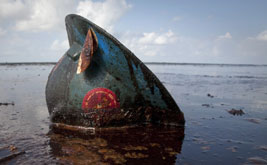
The Breakdown: Is Offshore Drilling Ever Safe? The Breakdown: Is Offshore Drilling Ever Safe?
Is BP unique in its ability to create catastrophe? On this week's episode of The Breakdown, Chris Hayes asks Greenpeace's Kert Davies whether the entire practice of offshore oil dr...
Aug 27, 2010 / Chris Hayes
